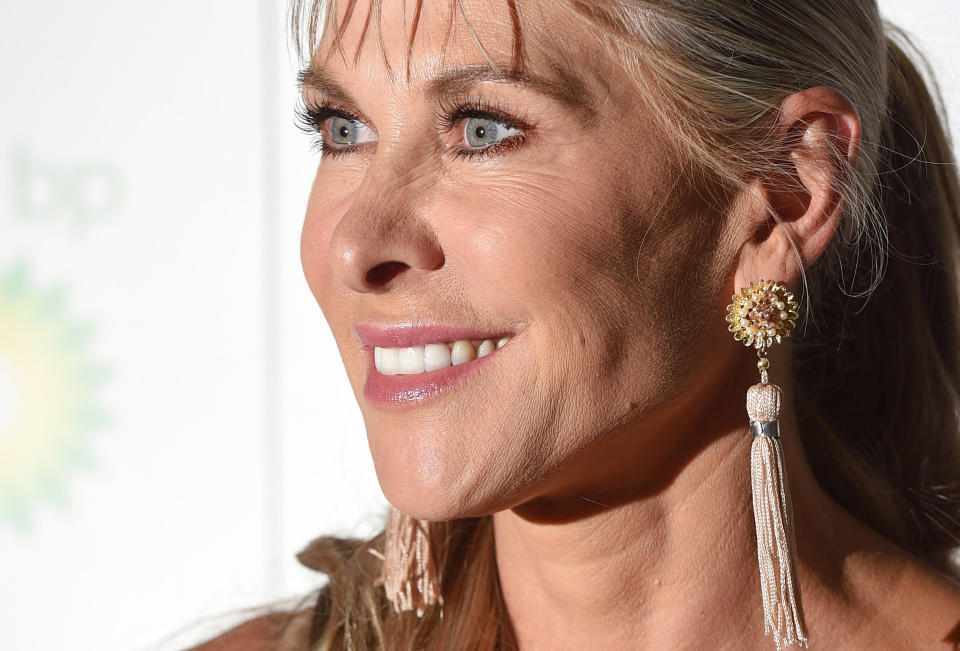Olympian accused of transphobia after 'binary sex' comments

A retired Olympic swimmer has sparked a transgender debate after stressing: “Binary sex matters”.
Sharron Davies MBE took to Twitter to share her views yesterday afternoon.
The 56-year-old, who retired from professional sport in 1994, spoke about the importance of acknowledging “binary sex”, making reference to men and women’s distinct roles in reproduction.
However, her views have sparked a backlash on social media.
If you put 2 biological females on an island humanity dies out (but they’d talk loads) if you put a biological male & a trans woman on an island humanity dies out. But if u put a male & a female there we might stand a chance! Providing they can fish of course. Binary Sex matters
— Sharron Davies MBE (@sharrond62) July 1, 2019
Some people are accusing Sharron of transphobia – defined as having a dislike of or prejudice towards transsexual or transgender people.
Hi Sharron, me & my partner are 2 cis women who live on an Island, AND we have 2 kids. I’m worried humanity may die out because of climate change though. Are you saying we should transfer our energies into transphobia? How will this help? Pls advise.
— its Laura 🦝 (@riotgrrill) July 2, 2019
So many problems with this. And also where’s the “gender critical” element if women are just going to “talk loads” Thr transphobia and internalised patriarchy always shines through
— Alexia Pepper de Caires (@je_ne_tweet_pas) July 1, 2019
A) your tweet sounds completely anti LGBTQ
B) I'm sure there are trans people out there who go through a personal hell to fight against how they truly feel because of the fear of non conformity
C) why do you assume that the 2 women will talk a lot?— Amanda Hunt (@man_ders11) July 2, 2019
Others simply called her views “stupid” and criticised her use of a bonkers hypothetical situation – which would necessitate incest – to make her point.
Congratulations, you have written the stupidest post of the day.
— mad mama (@thismadmama) July 2, 2019
But we aren’t in that hypothetical, so I ask this in the most polite way I can. Fuck all the way off
— All In With Oakland (@CallieTsai) July 2, 2019
Your extreme hypothetical scenario relies on incest to repopulate the planet. Pretty gross.
— Lily Madigan (@nolswo) July 1, 2019
The transgender debate in sports
Davies has proved an outspoken critic on the idea of male-to-female athletes competing in women’s events. Her comments have proved particularly controversial amid the raging debate over the role of transgender athletes in the sporting world.
Back in April, she defended the decision of RAW Powerlifting to strip transgender Mary Gregory, who had been born a man and was in the process of transitioning, of her world records.
And she isn’t the first athlete to land herself in hot water over these views.
Earlier this year, tennis player Martina Navratilova was accused of transphobia following an op-ed in which she called the idea of male-to-female athletes competing in women’s sports “insane, and it’s cheating”.
Gender vs Sex
To understand the full impact of Davies’ comments, it’s crucial to appreciate they were made about biological sex, rather than gender – as she highlights in a later tweet.
Gender is used to refer to the social and cultural definitions of male and female, and the distinct identities associated with them.
My goodness peeps are overthinking the island analogy.. it’s just a way of saying - humans to reproduce need the binary sexes. Sex & gender are different, sex is non changeable. Nothing to do with being gay. This relates to sport & male biology in female races being unfair.
— Sharron Davies MBE (@sharrond62) July 2, 2019
Meanwhile, sex is a biological form of categorisation.
The impact of gender within the sporting industry is a separate, but also important, conversation.
READ MORE: Sam Smith reveals he identifies as non-binary
Over the weekend, Davies also spoke about allowing children to act outside of gendered stereotypes.
So terriblely important kids are shown they can be anything outside the stereotypes thrust in their faces on tv & social media (in particular) all the time & that it doesn’t mean they have to change gender to be happy. Biology is 4 life. https://t.co/NS6d1MRQ2h
— Sharron Davies MBE (@sharrond62) June 30, 2019
In a similar vein, campaigns such as Nike’s ‘Dream Crazier’ have aimed to counteract the notion that women should feel limited by gender stereotypes in their sports careers.


